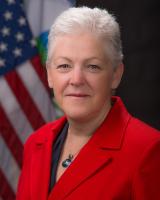 After a year of campaigning by the Moving Forward Network (MFN), a coalition of residents and their local organizations living near the nation’s sea and inland ports and freight corridors, EPA Administrator Gina McCarthy has agreed to take the immediate steps requested by the group to address the environmental health and climate impacts from freight facilities.
After a year of campaigning by the Moving Forward Network (MFN), a coalition of residents and their local organizations living near the nation’s sea and inland ports and freight corridors, EPA Administrator Gina McCarthy has agreed to take the immediate steps requested by the group to address the environmental health and climate impacts from freight facilities.
In a June 2, 2016 letter to Angelo Logan, MFN’s Director, McCarthy announced her intention to meet the MFN’s requests to:
-
Set up an agency-wide working group to address toxic freight pollution, which medical and public health researchers have found to cause extremely high rates of asthma in children and premature deaths from lung cancer, heart disease, stroke and neurological disorders in adults.
-
Develop a strategy to take the measures necessary over the next two years to ensure that commercially available lower- and zero-emissions truck technology be used at all of the nation’s sea and inland ports.
-
Develop an engagement plan to work with affected communities to develop a freight transportation strategy aimed at reaching zero-emissions as quickly as possible.



